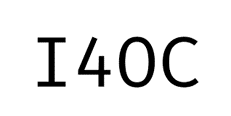Habilidades sociales y rendimiento académico en estudiantes de Psicología
Palabras clave:
habilidades sociales, rendimiento académico, inteligencia emocional, estudiantes universitarios, correlaciónResumen
Las habilidades sociales en el plano educativo permiten ejecutar tareas interpersonales, aportando a la convivencia armónica con los demás. El presente estudio fue no experimental, cuantitativo-correlacional. El objetivo general fue determinar la relación entre habilidades sociales y rendimiento académico en estudiantes de psicología. Participaron 424 alumnos. La muestra fue no probabilística en población finita. Los instrumentos utilizados fueron la Escala de Habilidades Sociales (EHS) y los Criterios para el Rendimiento Académico del CES. Los resultados determinaron una correlación negativa inversa sin asociación estadísticamente significativa según el estadígrafo de Pearson y el X2 (r=0,073, p< 0,135). El nivel de habilidades sociales fueron del 44,8 %. El nivel de rendimiento académico fue muy bueno 45,8 %. Se concluye que las habilidades sociales son necesarias para un desarrollo dentro del contexto universitario, pero no son primordiales para alcanzar un buen rendimiento académico. Se recomienda continuar las investigaciones bajo esta misma temática en donde se exploren otros factores asociados.
Descargas
Referencias
Cañabate, D., Martínez, G., Rodríguez, D. & Colomer, J. (2018). Analysing Emotions and Social Skills in Physical Education. Sustainability, 10(5), 1–8. https://doi.org/10.3390/su10051585
Cernat, V. & Moldovan, L. (2017). The emotional and social skills of students in egineering. Scientific Bulletin of the Petru Maior University of Tîrgu Mureş, 14(1), 37-42. https://doi.org/2286-3184
CES. (2014). Reglamento del Sistema de Evaluación Estudiantil. Recuperado de https://www.uleam.edu.ec/wp-content/uploads/2016/10/reglamento-del-sistema-de-evaluacion-estudiantil.pdf
Costantini, P. & Vitale, M. P. (Ed.). (2011). Analyzing Undergraduate Student Graduation De- lay: A Longitudinal Perspective. Statistical Methods for the Evaluation of University Sys- tems, (145-159). https://doi.org/10.1007/978-3-7908-2375-2_10
Dos Santos-Mello, T. V. & Benevides-Soares, A. (2014). Habilidades sociales y frustración en estudiantes de medicina. Ciencias Psicológicas, VIII(2), 163-172.
Elias, L.& Amaral, M. (2016). Habilidades Sociais, Comportamentos e Desempenho Acadêmico em Escolares antes e após Intervenção. Psico-USF, 21(1), 49-61. https://dx.doi.org/10.1590/1413-82712016210105
Flores, E., García, M., Calsina, W. & Yapuchura, A. (2016). Las habilidades sociales y la comunicación interpersonal de los estudiantes de la Universidad Nacional del Altiplano-Puno. Comuni@cción, 7(2), 5-14.
Gismero, E. (2000).Escala de habilidades sociales. Madrid: TEA ediciones.
Gomes, G. & Soares, A. B. (2013). Inteligência, habilidades sociais e expectativas acadêmicas no desempenho de estudantes universitários. Psicologia: Reflexão e Crítica, 26(4), 780- 789. https://doi.org/10.1590/S0102-79722013000400019
Jara, R., Juela, E. & Matute, A. (2011). Prevalencia del distrés y factores asociados en los estudiantes de la Escuela de Medicina de la Universidad de Cuenca, 2011. (Tesis de pregrado). Universidad de Cuenca, Ecuador.
Kholin, M., Meurs, J. A., Blickle, G., Whiler, A., Ewen, C., & Momm, T. D. (2016). Refining the Openness–Performance Relationship: Construct Specificity, Contextualization, Social Skill, and the Combination of Trait Self- and Other-Ratings. Journal of Personality Assess- ment, 98(3), 277-88. https://doi.org/10.1080/00223891.2015.1076430
Le, H., Casillas, A., Robbins, S. B. & Langley, R. (2005). Motivational and skills, social, and self-management predictors of college outcomes: Constructing the student readiness inventory. Educational and Psychological Measurement, 65(3), 482-508. https://doi.org/10.1177/0013164404272493
Le, H.; Casillas, A.; Robbins, S. & Langley, R. (2005). Motivational and Skills, Social, and Self-Management Predictors of College Outcomes: Constructing the Student Readiness Inventory. Educational and Psychological Measurement, 65(3), 482-508.
Lewis, T. & Taylor, P. (2007). Social Inequality in Education: A Constraint on an American High-Skills. Curriculum Inquiry, 37(4), 329-349. https://doi.org/10.1111/j.1467-873X.2007.00390.x
Quintana, Y. (2010). Propiedades Psicométricas de la escala de habilidades sociales en Alumnos de nivel Secundario de Catavio. Jang, 3(2), 1-17. Disponible en: http://revistas.ucv.edu.pe/index.php/JANG/article/view/48/8
Rytkönen, H., Parpala, A., Lindblom-Ylänne, S., Virtanen, V. & Postareff, L. (2012). Factors affecting bioscience students’ academic achievement. Instructional Science, 40(2), 241- 256. https://doi.org/10.1007/s11251-011-9176-3
Samadzadeh, M., Abbasi, M. & Shahbazzadegan, B. (2011). Survey of Relationship between psychological hardiness, thinking styles and social skills with high school student’s academic progress in Arak city. Procedia-Social and Behavioral Sciences, 28, 286-292. https://doi.org/10.1016/j.sbspro.2011.11.055
Santos-Morocho, J. (2013). La mediación pedagógica y los recursos modernos para una edu- cación con sentido. (Tesis de posgrado). Universidad del Azuay, Ecuador. Recuperado de http://dspace.uazuay.edu.ec/handle/datos/3235
Santos-Morocho, J. (2015). La mediación como una herramienta pedagógica en el proceso enseñanza-aprendizaje en la universidad. Orbita Cientifica, 21(8), 85–86.
Santos-Morocho, J. & Coronel, D. (2016). Inteligencia Emocional en niños trabajadores. Ecuador: Editorial Universidad Católica.
Solano, L. (2015). Rendimiento académico de los estudiantes de secundaria obligatoria y su relación con las aptitudes mentales y las actitudes ante el estudio. (Tesis de posgrado). Universidad Nacional de Educación a Distancia, España.
Zavala, M., Valadez, M. & Vargas, M. (2008). Inteligencia emocional y habilidades sociales en adolescentes con alta aceptación social. Revista Electrónica de Investigación Psicoeducativa, 6(2), 321–339.
Descargas
Publicado
Número
Sección
Licencia
Derechos de autor 2018 PsiqueMag

Esta obra está bajo una licencia internacional Creative Commons Atribución-NoComercial-SinDerivadas 4.0.
Usted es libre de:
- Compartir — copiar y redistribuir el material en cualquier medio o formato
- El licenciador no puede revocar estas libertades mientras cumpla con los términos de la licencia.
Bajo las condiciones siguientes:
-
Reconocimiento — Debe reconocer adecuadamente la autoría, proporcionar un enlace a la licencia e indicar si se han realizado cambios<. Puede hacerlo de cualquier manera razonable, pero no de una manera que sugiera que tiene el apoyo del licenciador o lo recibe por el uso que hace.













